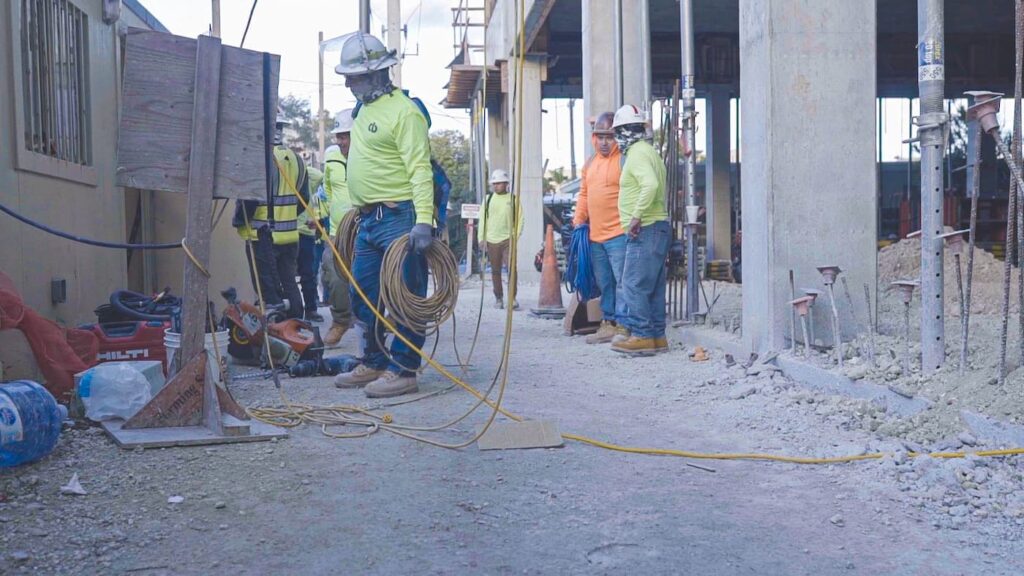Labor costs are one of the most frustrating problems with the construction of projects. This usually is the deciding factor in a project’s budget. For instance, a mechanical subcontractor in one project had labor costs 25% higher than the previous expectations.
This was later manifested in decreased productivity, overtime work, and leisure periods – issues that are usually encountered in the construction sector. As stated in the report of the National Association of Home Builders (NAHB), labor represents about 30% to 50% of the total costs of a construction project; hence, small inefficiencies can become a serious waste of time and money.
Labor costs could go out of hand if they are not adequately monitored. The bottom line of the business and project deadlines are impacted. For this reason, effective labor management is essential. It helps maintain profitability while achieving project goals.
Labor cost control starts with a reliable construction time tracking system that shows you exactly where every hour goes before it hits payroll.
If you’re cutting labor costs across multiple projects, allowances matter, this breakdown of per diem in construction helps you avoid preventable payroll leakage.
Understanding Labor Costs in Construction
Labor costs in construction fall into two primary categories:
1. Direct Labor Costs:
Direct labor costs are those wages that are directly paid to workers. These are paid to those workers who contribute to the physical construction. They consist of carpenters, electricians, plumbers, and other skilled tradespeople. These costs are important as they are linked directly to the project work.
2. Indirect Labor Costs:
Indirect labor costs refer to non-direct construction expenses alone. Indirect labor costs include the various pay-related employees and operators in the office, administrative support, and training programs which are essential elements of the operation to run the business. The indirect type of labor is also known as labor that is not paid solely by one particular project.
Effective labor cost management requires precise labor cost tracking methods. This is due to distinguishing between direct and indirect labor costs especially given the fluctuating demands of job sites and varying labor laws.
The Role of Accurate Time Tracking in Reducing Construction Labor Costs
An essential element in managing labor costs is tracking time efficiently and accurately. Accurate records of working hours can minimize excessive working hours and idle hours expenses. According to the National Institute of Standards and Technology (NIST), ineffective time management causes 10-20% more expenses due to the labor costs.
Through a collaboration with a time-tracking specialist, the construction companies could be equipped with effective means to gather data about productivity, detect different problems, optimize resource allocation, and eventually, cut labor costs.
Benefits of Partnering with Construction Time Tracking Experts
A robust time-tracking system goes beyond increasing efficiency. It assists subcontractors in tracking and controlling labor costs and even reducing their workforce, thus saving them a lot of money. By partnering with time-tracking experts, contractors gain access to valuable expertise, advanced tools, and best practices.
According to a Harvard Business Review survey, the US economy loses $7.4 billion every day because employees do not clock in. Clocking in the poor performance of employees track their working hours, this will result in underpayment or overpayment which in turn can bring about discontent among employees, employee relations litigation or excessive labor costs.
Besides, the lack of correct time records denies the production check, hence the company is unable to identify the dead time or completion delays that contribute to higher project costs. Once you can validate hours, the next step is proving performance, this productivity tracking software guide explains how to measure earned vs. burned hours.
If you’re budgeting for durable hardware, our top 5 portable construction time clocks can help you compare cost vs. value across rugged devices.
One more effect of this situation is the management of labor distribution not being efficient as the supervisors are not equipped with the necessary data to avoid overstaffing, understaffing, or unnecessary overtime. Moreover, enforcement of labor laws often obligates the presence of work hour records that are clear enough, therefore failure to do so gives rise to the legal penalties, fines, and reputation damage problems.
Missing clock-ins five times also creates the data gaps which affect the accuracy of budgeting and decrease the chances of improving operations. Cooperation with time-tracking experts ensures that these inefficiencies are minimized through automated tools and best practices, thus, accuracy, compliance and profitability are finally improved.
Here’s how time-tracking experts can help:
Clearer View of Work Processes
Time tracking adds transparency to your business. They demonstrate what jobs are being performed and the time required to complete them. This way, you can identify tasks that are taking longer than they should to be completed and plan better. It also means that the employees can view the workloads and how they can improve on productivity levels. They can monitor their work and have insight into what others are doing.
Higher Accountability Among Employees
Employees who are required to log their time tend to be more attentive. Their awareness of the need to track hours dedicated to each task helps boost their productivity. Employees can also analyze patterns in their recorded timesheets to identify and minimize wasted time, allowing them to work more efficiently and make continuous productivity improvements.
Better Billing and Efficiency
For service businesses, time is critical, so it is important to track time. It has its output in billing reports and reveals the effectiveness of each team member and the company. One can also measure the time spent on client work and charge appropriately. More billable hours directly contribute to increased company profits and sustainable growth.
Know Where Resources Are Needed Most
Time tracking allows you to determine where resources are needed the most. You can discover whether a department requires additional staff or if some staff members are overburdened with work. This information helps help leaders balance their team’s workload.
Track Your Budget in Real Time
Time tracking helps you determine how much of your project budget has been spent. When employees complete the timesheets, costs are calculated instantly. This helps to eliminate additional processes for budgeting calculations. That way, you can control the spending as long as the hourly rates are well determined.
Get Control of Your Time Tracking
How SmartBarrel Helps Reduce Construction Labor Costs
SmartBarrel is a revolutionary time-tracking software developed for the construction trade industry. The system’s ability to track time through biometrics and location makes labor utilization easy and efficient. Here’s how SmartBarrel makes a difference:
Precision Time Tracking
With AI-powered biometric verification, only the right team members clock in—no more buddy punching or time theft. By locking down actual hours worked, you keep labor costs tight and payroll accurate. Automating your construction time tracking system means faster, hassle-free clock-ins, giving everyone more time to finish the real work.
For contractors working across multiple sites, a magnetic-mount time clock that’s portable, weatherproof, and self-powered makes it simple to deploy accurate time tracking wherever crews are working.
Geo-fencing Capabilities
Geo-fencing only allows employees to clock in when they are physically on-site, reducing time theft and cutting labor costs by ensuring that only actual worked hours are logged. This improves efficiency and streamlines payroll, which helps companies save on unnecessary labor costs.
Data-Driven Insights
By accurately tracking labor hours through a biometric time-tracking system, SmartBarrel gives you a clear picture of where time and money might be slipping away.
With these insights, companies can make smarter calls and keep labor costs under control. It’s data that doesn’t just track time. It drives impact.
Strategies for Implementing Effective Time Tracking
Implementing time tracking as a solution is a complex process. Specialty contractors should consider the following strategies to maximize efficiency and reduce labor costs:
Choose the Right Technology
Choosing a precise time tracking tool like SmartBarrel for the construction business guarantees precise data capture. The benefits include biometric authentication and geo-fencing. These two top features yield accurate automated time logs integral to managing labor expenses.
Train Workers
According to PMI, the efficiency of projects can be increased by 20% due to practical training. Getting employees involved early is an essential part of implementing a new system.
SmartBarrel implementation is fast and straightforward, so teams can jump right in. Setting up the SmartBarrel time clock takes no technical experience, and all workers need to get started is a phone number and a quick picture.
Integrate with Payroll Systems and ERPs
Connecting your time-tracking system with payroll helps eliminate manual hours-to-pay processing and cuts out payroll headaches. SmartBarrel seamlessly links with Procore, CMiC, Sage, and more. With real-time, accurate data flowing effortlessly to your payroll team, you can reduce errors, boost cost control, and keep operations running smoothly.
Regularly Review Labor Data
Regular collection and analysis of labor data enable the project manager to recognize productivity trends, define bottlenecks, and manage staffing resources effectively. Such findings give ideas on how to cut costs, for instance, by reducing working hours and redistributing the workforce to increase productivity and decrease project costs.
Your ERP can’t help you if the data feeding it is wrong. Learn how construction cost tracking systems should actually work.
The Long-Term Benefits of Reducing Construction Labor Costs
The benefits of investing and managing labor costs are more than just short-term. Interestingly, specialty contractors can benefit from sustainable changes in the delivery of projects, the morale of employees, and profitability. Let’s explore these benefits:
Increased Budget Flexibility
Cutting labor costs means that funds otherwise used to cover this cost can be channeled to other productive uses, like acquiring equipment or expanding the docket of projects. This flexibility gives specialty contractors an advantage, enabling them to bid for more complex projects.
Enhanced Workforce Efficiency
When specialty contractors cut labor costs by managing time more effectively, they can invest wisely in the employees, making their workers more efficient. Team management reduces time wastage, increases quality, and creates a healthy workplace.
Improved Project Delivery and Client Satisfaction
Control of labor costs helps achieve project milestones on schedule and deliver projects that meet clients’ quality and timely delivery expectations. To establish a reputable company, every specialty contractor wants to satisfy their clients as much as possible.
Accurate labor data is the foundation of effective construction job costing. Without it, you’re building financial reports on guesswork.
Conclusion
Specialty contractors can work closely with a time-tracking expert like SmartBarrel to make the necessary changes to avoid excessive labor costs negatively affecting the project budgets. SmartBarrel is an accurate, reliable, and easy-to-use product that uses AI biometric tracking and geo-fencing for construction timekeeping needs. Are you interested in specialized technology and successful strategies to help manage labor costs, increase efficiency, and guarantee sustainable development? Learn more and book your demo right now!




